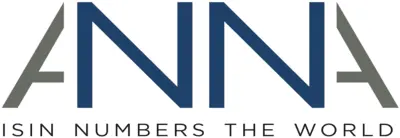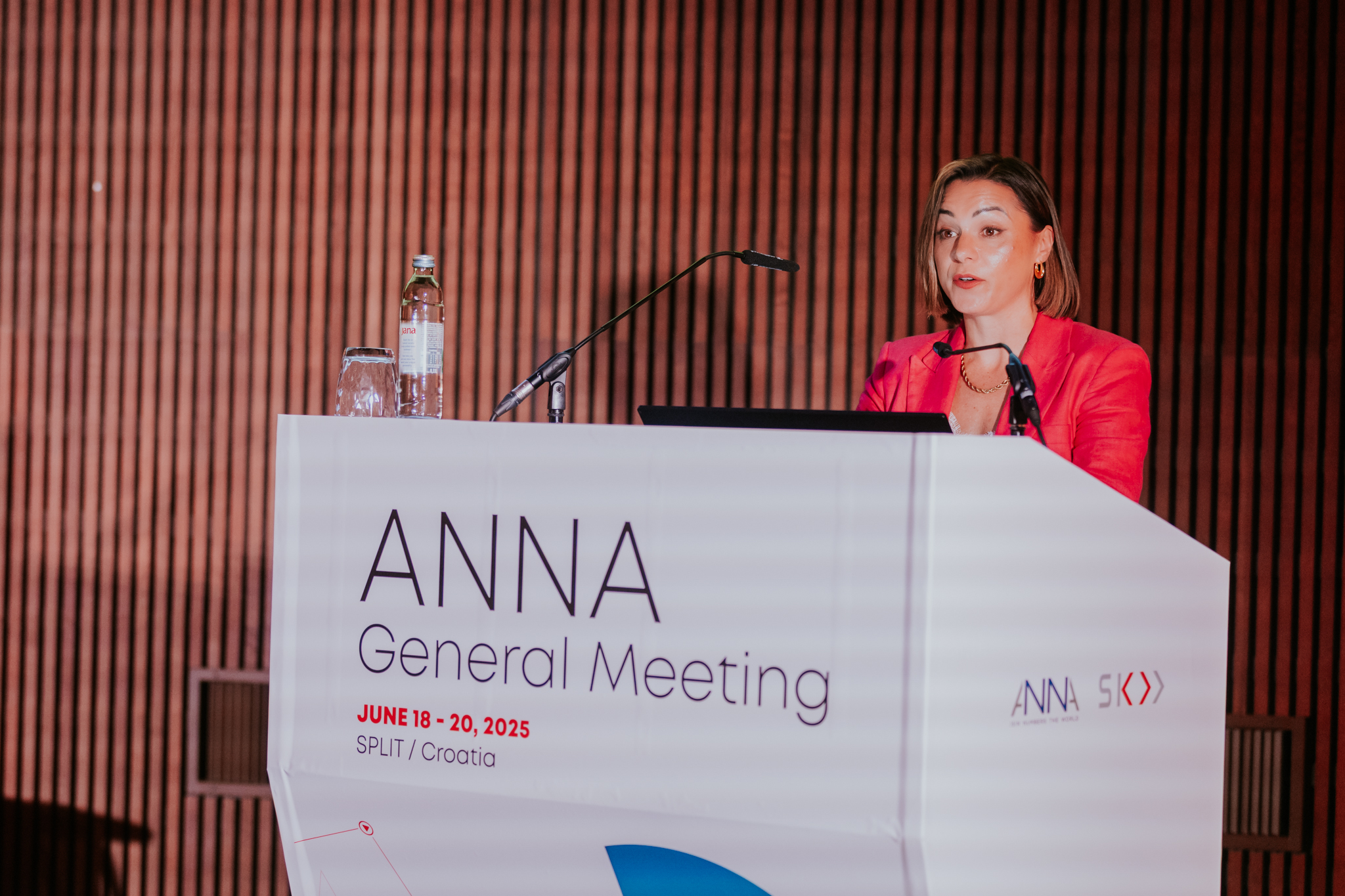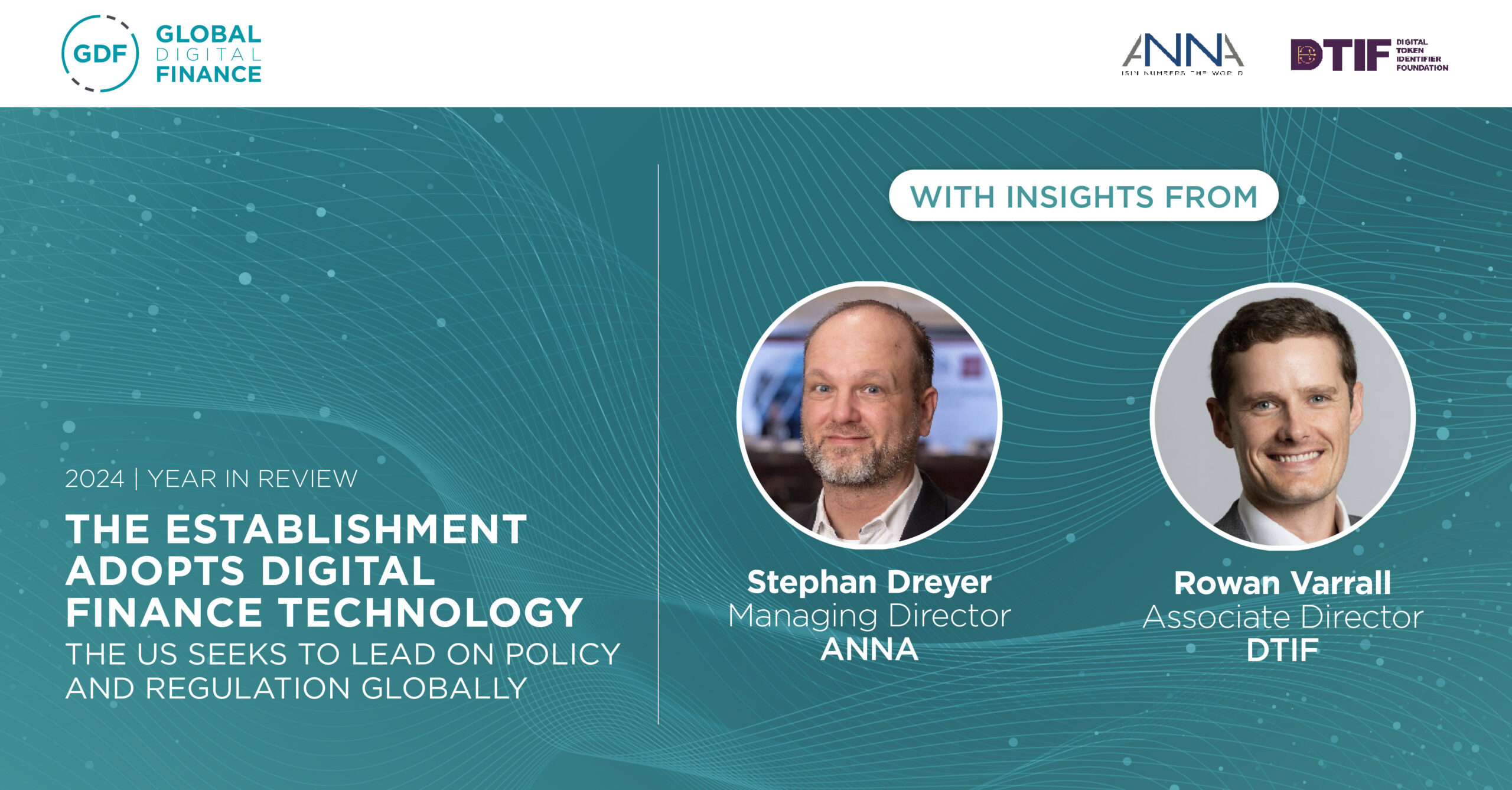First published on TabbFORUM, 25 June 2025. A universal language Consensus-based financial standards developed by…

Q&A with Laura Stanley, Director of Symbology, London Stock Exchange Group (LSEG) and the Vice Chair of the ANNA Board of Directors
Laura Stanley is the Director of Symbology at the London Stock Exchange Group (LSEG) and the Vice
Chair of the Association of National Numbering Agencies (ANNA) Board of Directors. She participates in
several ANNA working groups and task forces and also serves on the Board of the Derivatives Service
Bureau (DSB). Representing LSEG, a founding ANNA member, Laura is an active advocate of the
advancement of global standards in the identifier space. In this interview, Laura shares how the
foundational principles of ANNA, and the collective work of global NNAs towards the ongoing
development of data standards, are as important today as they have ever been since ANNA’s inception.
As an NNA, what are your priorities and how do these fit with ANNA?
Within LSEG, our National Numbering Agency (NNA) functions are segregated from our other group offerings and the priority is to provide a free service for identifier allocations. We have always been the issuer of identifiers for instruments across the UK and without an International Securities Identification Number (ISIN) organisations cannot list on the London Stock Exchange (LSE). Alongside operating the London Stock Exchange, LSEG offers additional, complimentary services such as ISIN pre-allocation services, and linking ISINs to Legal Entity Identifiers (LEIs) governed by the Global Legal Entity Identifier Foundation (GLEIF), which provides support for regulatory reporting and risk analysis. At LSEG we also act as a Local Operating Unit (LOU) and have authorisation to issue LEI codes globally across all jurisdictions.
As an NNA, all our activities are designed to serve the best interests of the market and we are fully aligned with ANNA principles, seeking to bring greater market transparency through the use of global, interoperable financial standards.
What benefits does ANNA membership bring to you and other global NNAs?
ANNA embodies standards globally. Allocated by NNAs, the ISIN standard is well-known, deeply embedded and used throughout the financial industry. As standards, technology and regulation have developed, and continue to do so, the interoperability of various standards can be challenging. The ISIN is a common thread throughout the financial industry and significantly contributes to solving interoperability challenges.
ANNA is a great facilitator for NNAs to work together to solve common issues, to share market understanding and to help respond to regulatory developments. Above all, ANNA members share the same values. Every NNA offers a perspective and ANNA provides a forum for the industry to work with the industry, for the industry. Active engagement from NNAs shapes outcomes that benefit everyone, addressing their own jurisdictional needs and those of the wider global arena.
How does ANNA engage with members and markets?
There are many ways in which ANNA engages with members, from committees, to dedicated task forces and bi-annual general meetings. Additionally, regular educational communications, external marketing and social media channels are also a great way to connect with members to share and discuss the latest industry developments that require review and consultation. Whether that is regulation or new innovative assets that require clear guidelines to cater for challenges around allocation, effective connection and communication via ANNA keeps all NNAs informed and engaged with developments that affect us all, locally and globally.
In your opinion, what has been the greatest achievement of ANNA and the NNA community to date?
The first version of the ISIN Standard, ISO 6166 was published over 40 years ago, driven by the industry’s need to improve cross-border trading and global interoperability. Through the many years of significant market developments, huge technological advancements and ever-evolving regulatory regimes, ANNA’s greatest achievement has been an unwavering dedication to the development of standards and identifiers that support market transparency and efficiency worldwide.
ANNA and the NNAs are as relevant today as they were when they first started. In fact, they are more important than ever. It’s really impressive how standards have endured the test of time and evolved in line with industry needs. They are not just a processing need-to-have; interoperable standards underpin proper and efficient functioning of markets. This is a very unique position to be in and a great achievement for the entire community.
What does the future hold for standards and identifiers in the financial industry?
There is no doubt that use cases will continue to expand. For example, in 2019 ANNA established a task force to help markets harness the benefits of the fledgling digital asset class. Since then, the world of crypto assets has expanded dramatically. While the potential use cases for blockchain and digital assets are new and stimulating, the interoperability and harmonisation of standards still need to be established for market participants to realise their full potential. ANNA is now providing ISO standard identifiers for digital assets based on open data principles – the ‘XT ISIN’.
More broadly, with advances in AI, together with the global and growing focus on ESG, standards will continue to play an important part in the future of the financial markets.
The next general meeting is in June 2024. What’s your message to the ANNA community?
Being part of the conversation is being part of the outcome. We work in an industry that is hardcoded for identifiers – there are over 100 NNAs responsible for issuing ISINs for over 200 jurisdictions that identify millions of instruments. There is great potential to get involved in new initiatives and this creates an exciting prospect for NNAs. I would encourage members to get involved, to collaborate collectively and contribute to the future of global standards to ensure they continue to be fit for purpose and fit for the times.




Comments (0)